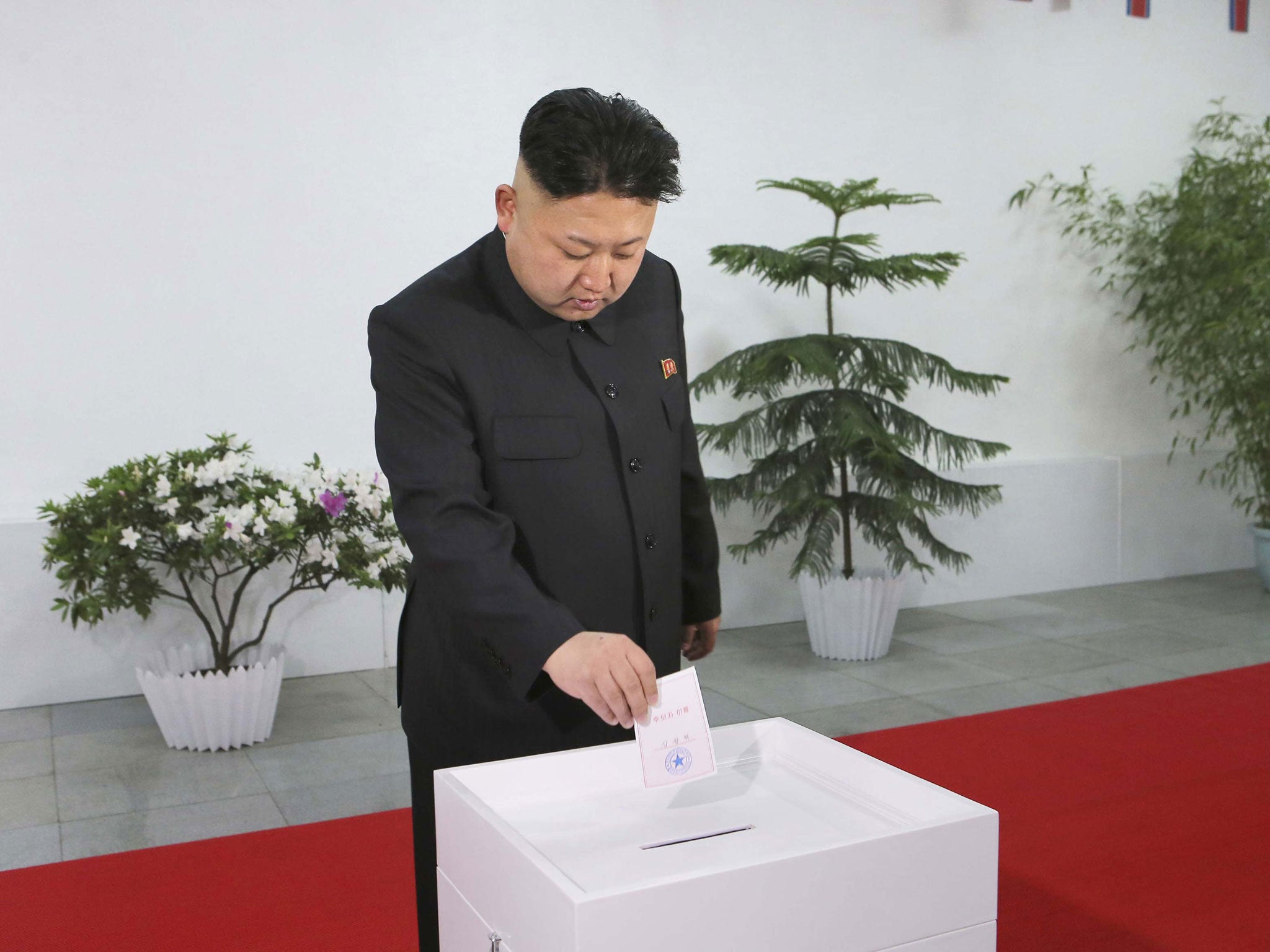North Korea keeps a vice-like grip on its citizens with compulsory national legislature vote
Choices were made by the ruling elite, not citizen voters

Your support helps us to tell the story
From reproductive rights to climate change to Big Tech, The Independent is on the ground when the story is developing. Whether it's investigating the financials of Elon Musk's pro-Trump PAC or producing our latest documentary, 'The A Word', which shines a light on the American women fighting for reproductive rights, we know how important it is to parse out the facts from the messaging.
At such a critical moment in US history, we need reporters on the ground. Your donation allows us to keep sending journalists to speak to both sides of the story.
The Independent is trusted by Americans across the entire political spectrum. And unlike many other quality news outlets, we choose not to lock Americans out of our reporting and analysis with paywalls. We believe quality journalism should be available to everyone, paid for by those who can afford it.
Your support makes all the difference.North Korean voters went to the polls on Sunday to elect a new national legislature, but nobody actually voted for one candidate over another. The ruling elite have already done that for them, and there’s only one per district.
They get to vote "yes" or "no." Virtually all pick "yes". One thing they can't choose is whether to bother voting. Going to the polls is expected of all eligible voters, which effectively makes North Korean elections a powerful tool for checking up on the people.
For outsiders trying to figure out North Korean politics, Sunday's elections for the Supreme People's Assembly may shed some light on what personalities are in favour and likely to dominate in the years ahead. For the authorities, the elections provide a veneer of democracy and a means of monitoring the whereabouts and loyalties of citizens.
Along with nearly 700 other "deputies" expected to be seated in the new assembly, Supreme Leader Kim Jong-un has announced his candidacy - in District 111 on sacred Mount Paekdu.
Official turnout rates are reported at more than 99 per cent. Fictitious as that may sound, Michael Madden, editor of the NK Leadership Watch website, said it reflects one reason the autocratic North has votes at all: they provide "the most comprehensive assessment of the population".
Mustering the nation is a chance for the authorities to hone their mobilisation skills, check the efficiency of local leaders and get a snapshot of internal movements.
"The DPRK is very good at mobilising the population for events," Mr Madden said, adding that elections: "Are celebratory events. And according to North Korean migrants and defectors, it is very difficult to get a hardship dispensation from participating."
Mr Madden said security officials will review data on non-voters to glean information on suspicious activity - absentees could be workers who have snuck off to China for higher pay or military personnel who have gone awol. AP
Join our commenting forum
Join thought-provoking conversations, follow other Independent readers and see their replies
Comments